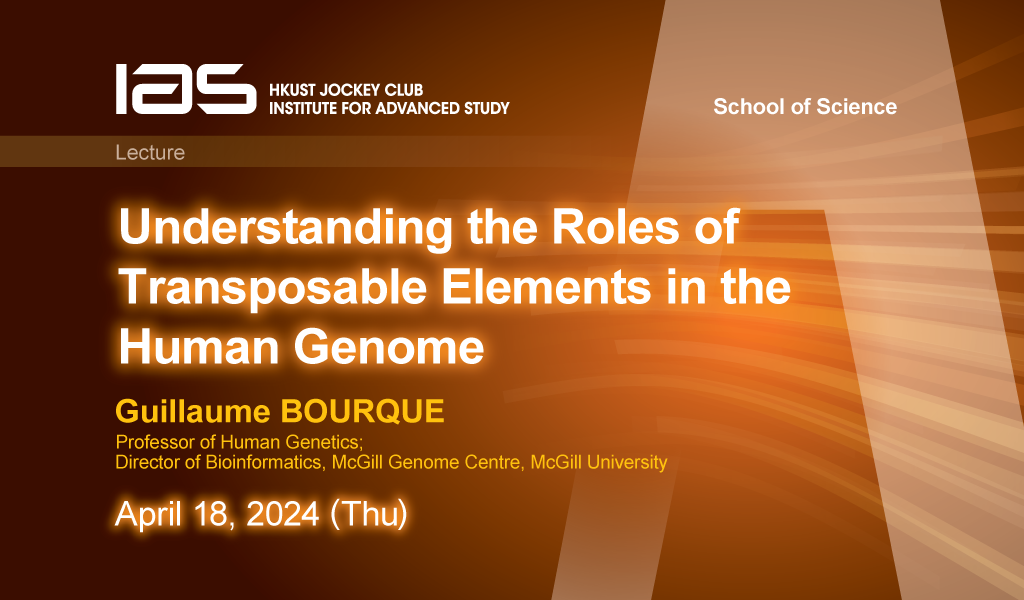
Abstract
Transposable elements (TEs) have expanded the binding repertoire of many transcription factors and, through this process, have been co-opted in different transcriptional networks. In this lecture, the speaker will present on three recent projects that explore the role of TEs in the human genome.
First, he will discuss the results of a study looking at epigenetic changes following influenza infection in monocyte-derived macrophages extracted from 35 individuals of different ancestry. Specifically, he will show that different TEs families are associated with regions of shared and variable accessibility across individuals upon infection. He will also show that TEs can predict a significant portion of the heterogeneity that his research team observes in the response to infection.
Then, he will discuss a study that leveraged a new dataset from the International Human Epigenome Consortium (IHEC) with 5219 ChIP-seq experiments for 6 histone marks across 60 cell types. From this, the speaker will show that TEs have drastically different enrichment levels across marks and tissues. In particular, he will identify over 100 TE-Cell type-histone mark triplets to explore their potential functional relevance.
Lastly, he observed that current approaches for classifying and annotating endogenous retroviruses (ERVs) in the human genome have limited resolution and are inaccurate. The speaker will propose a new annotation based on phylogenetic analysis and cross-species conservation that reveals cryptic ERV subfamilies in the primate lineage with distinct epigenetic profiles. With such a refined annotation, it will be possible to better understand the evolution of ERVs in primate genomes and identify new roles for them in their hosts.
About the Speaker
Dr. Guillaume BOURQUE is a Professor in the Department of Human Genetics at McGill University, a Canada Research Chair in Computational Genomics and Medicine and the Director of Bioinformatics at the McGill Genome Centre. He leads the Canadian Centre for Computational Genomics and the Epigenomics Mapping Centre at McGill. He is also a Principal Investigator at the Institute for the Advanced Study of Human Biology (ASHBi) of Kyoto University. Dr. Bourque is on the Scientific Steering Committee of the International Human Epigenome Consortium (IHEC) and on the Steering Committee of the Global Alliance for Genomics and Health (GA4GH). He leads a project called the Pan-Canadian Genome Library, which will allow for easier analysis and sharing of genomic data across the country. His research interests are in comparative and functional genomics with a special emphasis on applications of next-generation sequencing technologies and transposable elements.
For Attendees' Attention
Seating is on a first come, first served basis.



